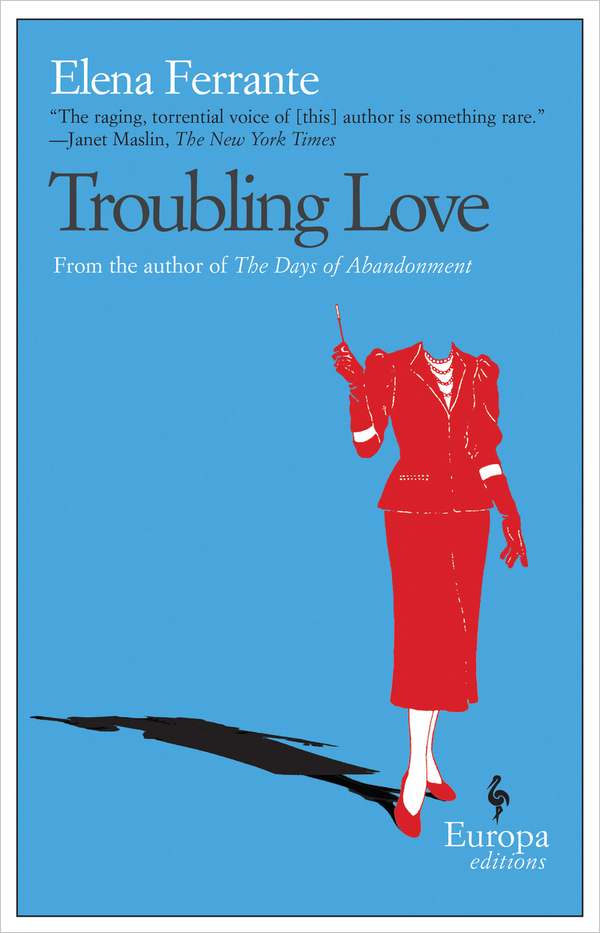It's Ferrante's first novel. Perhaps it shows; maybe it lacks fluidity, or something like that — it's jarring. I would not recommend this book as a way into Ferrante. It's narratively less compelling than her other novels. Maybe my hesitation in endorsing it lies simply in that it's so troubling (which, of course, may be the point). This is not an easy book.
Then there's the novels subjects and themes. Also troubling.
This is about Delia, a 40-ish-year-old woman coming to terms with her mother's death. There's the problem of the nature of the death, accidental or deliberate — could it really have been suicide? There's the problem of the circumstances of the death — where she was and with whom, and dressed like that? There's the problem of the relationship of the mother, long ago separated from Delia's father, with another man, whom Delia recalls from her childhood.
It occurred to me that ever since she was a girl Amalia had thought of hands as gloves, silhouettes first of paper, then of leather. She had sewed and sewed. Then, moving on, she had reduced widows of generals, wives of dentists, sisters of magistrates to measurements of bust and hips. Those measurements, taken by discreetly embracing, with her seamstress's tape, female bodies of all ages, became paper patterns that, fastened to the fabric with pins, portrayed on it the shadows of breasts and hips. Now, intently, she cut the material, stretched tight, following the outline imposed by the pattern. For all the days of her life she had reduced the uneasiness of bodies to paper and fabric, and perhaps it had become a habit, and so, out of habit, she tacitly rethought what was out of proportion, giving it the proper measure. I had never thought about this, and now that I had I couldn't ask her if it really had been like that. Everything was lost. But, in front of Signora De Riso as she ate cherries, I found that that final game of fabrics between her and Caserta, that reduction of their underground history to a conventional exchange of old garments for new, was a sort of ironic fulfillment. My mood abruptly changed. I was suddenly content to believe that her carelessness had been thought out. Unexpectedly, surprisingly, I liked that woman who in some way had completely invented her story, playing on her own with empty fabrics. I imagined that she hadn't died unsatisfied, and I sighed with unexpected satisfaction.There's the problem of love. Is the title referencing the mother's relationships? Delia's relationship with her mother (not exactly loving, yet somehow fraught with love)? Delia's love life (perhaps troublingly absent)?
There's the problem of memory. How Delia remembers her childhood, and the people and events of her childhood, and the hazy reality of it. The past is quite troubling, and she must finally confront it.
There's Delia's relationship to her own body. Her aging body. Clothes and appearances figure prominently.
The most troubling thing of all: she is becoming her mother.
See also
New York Times: Return to Naples
The Iowa Review



No comments:
Post a Comment